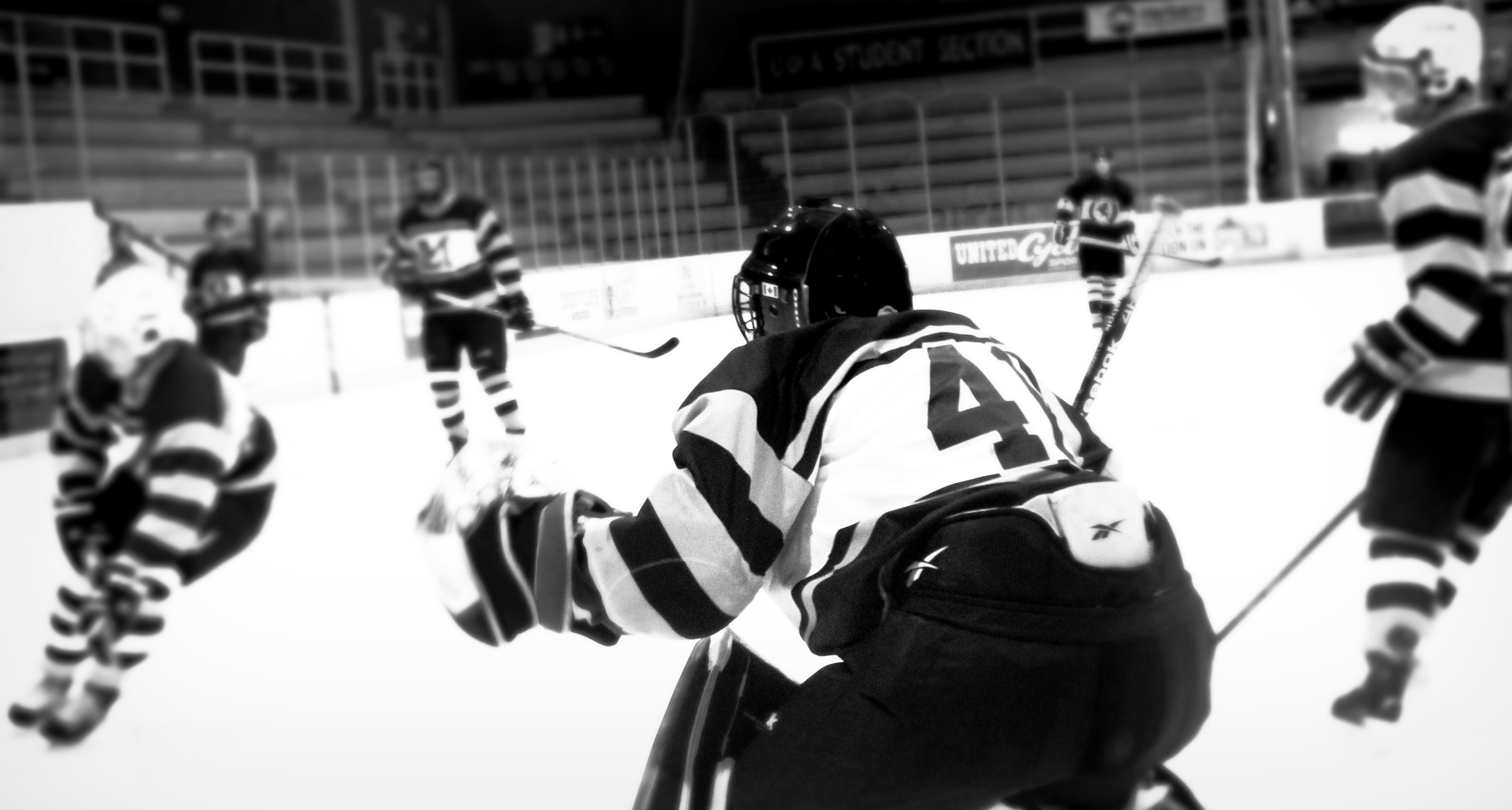
Yes, ice hockey is studied across the academy and not just in Canada. Since the publication of Gruneau and Whitson’s Hockey Night in Canada: Sports, Identities and Cultural Politics Hockey Night in Canada: Sports, Identities and Cultural Politics (1994), non-natural science-based hockey studies have begun to proliferate. From sociological and psychological examinations of the sport, to economics and marketing perspectives, and politics, history and literature — hockey is strongly associated with North American culture and beyond. It is thus taken up as an object of analysis for its role in society. Given the sport’s relevance, particularly in Canada, it is important to ask questions about how it has developed or changed, how it might affect socialization or politics and the economy, why it is so meaningful to certain groups, and how it could be improved for those who either do, or seek to, participate in it.
In my capacity as both a hockey athlete and a sociologist, I have been fortunate enough to combine my on- and off-ice passions in order to help make both sport and society more inclusive. Specifically, my work on the LGBTQ2S community’s participation in hockey aims to provide visibility and support for minority voices in ice hockey such as those of gay men and trans folks. For parents, coaches, and policymakers, we in academia can be solid resources for determining best practice when it comes to ensuring that all athletes feel safe and welcome in their sport.
Research on ice hockey is most useful when the community and the academy come together. Scholars are able to obtain rich empirical data and the hockey community benefits from any practical outcomes of the study. The interdisciplinarity of hockey studies makes for multifaceted and rigorous approaches to a sport that, for many in Canada, has become more of a lifestyle than a pastime. This kind of work delves below the surface of a sport that many take for granted in terms of its ability to be an agent of social and political change.
For example, the recent tragedy in Humboldt, Saskatchewan — a bus crash that claimed the lives of several members of a Junior hockey team — sparked both conversation and action surrounding matters such as organ donation. The incident also garnered support in the form of millions of dollars from a Gofundme.com fundraiser as well as attention from major celebrities and politicians around the world. As a hockey scholar, I ask: why were so many people touched by this incident and what does that tell us about the value of ice hockey in society?
In 2001, a group of scholars came together for the first ever Hockey Conference at Saint Mary’s University in Halifax, Nova Scotia. They sought to share their work and ideas on hockey as a site for academic enquiry. Since then, the event has taken place in a different city every two years, approximately, and has welcomed prominent speakers. These include David Whitson, co-author of the aforementioned Hockey Night in Canada book; Ted Nolan, an Anishinaabe former National Hockey League (NHL) player and coach; Jean Beliveau and Ken Dryden, both infamous former members of the NHL’s Montreal Canadiens; and Hazel McCallion, one of the first ever paid women’s ice hockey players ($5 per game in the early 1900’s) who was instrumental in the development of the sport for girls and women in Ontario.
Currently in its ninth iteration, The Hockey Conference will take place July 5–7, 2018 at the University of Alberta. With the support of the Bears and Pandas and other community partners, I am chairing the organizing committee, which has assembled a superb program. Guest speakers include former Olympian Jennifer Boterill and Karl Subban, a former school principal and the father of three sons in the NHL and its feeder system. There will be presentations from scholars and community members and a game of shinny at the Clare Drake.
While the call for papers deadline has passed, those interested in participating as observers or attending brunch with Karl Subban are invited to visit www.thehockeyconference.ca for further details.
Cheryl MacDonald — Postdoctoral Researcher, Institute for Sexual Minority Studies and Services

Cheryl MacDonald is a sport sociologist and postdoctoral researcher at the Institute for Sexual Minority Studies and Services in the Faculty of Education. Her research focuses on gender, sexuality, and ice hockey. She contributes regularly to the blog Hockey in Society, is active as a public academic on Twitter and in mainstream media, and avidly presents at conferences and invited talks.